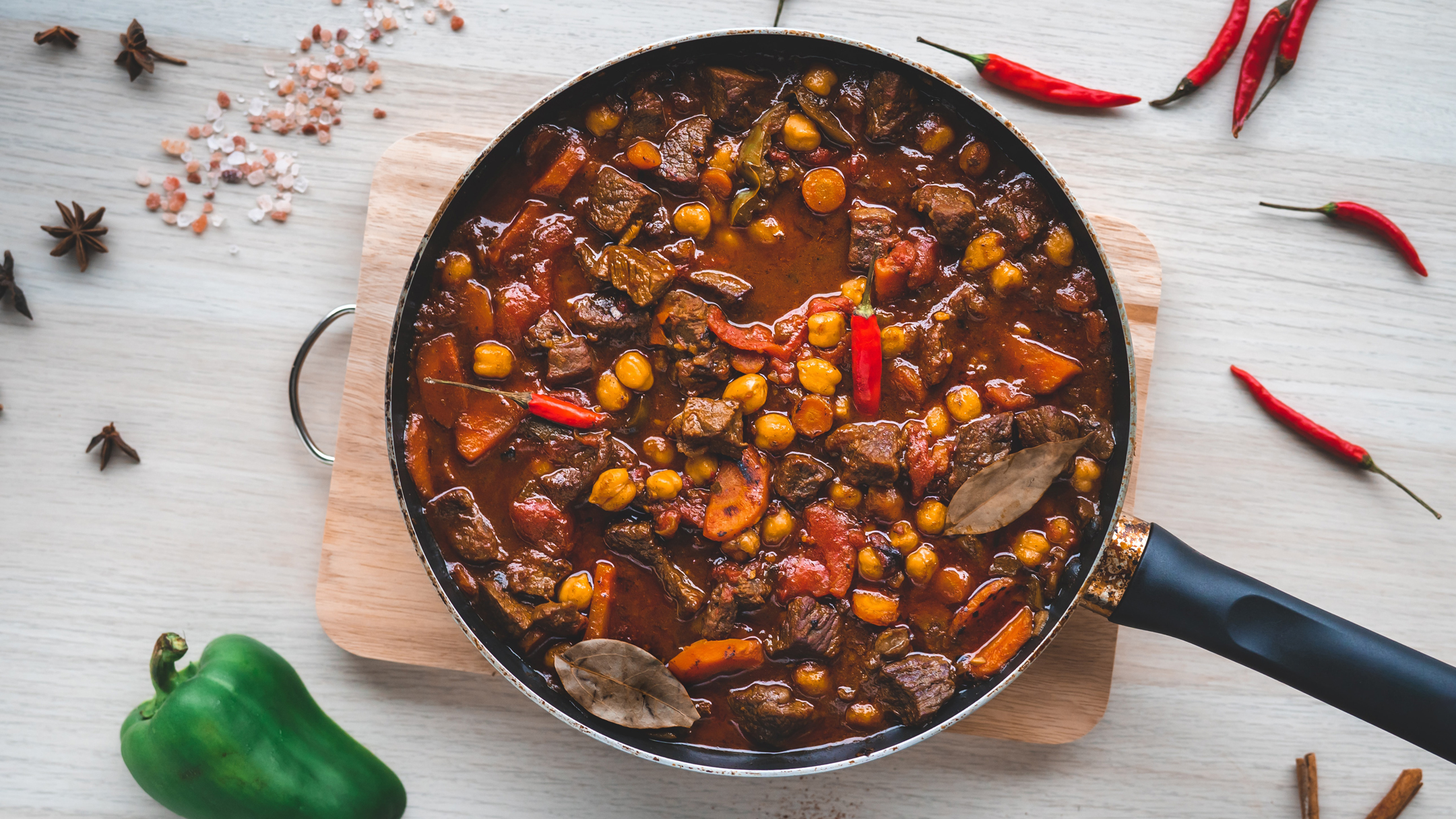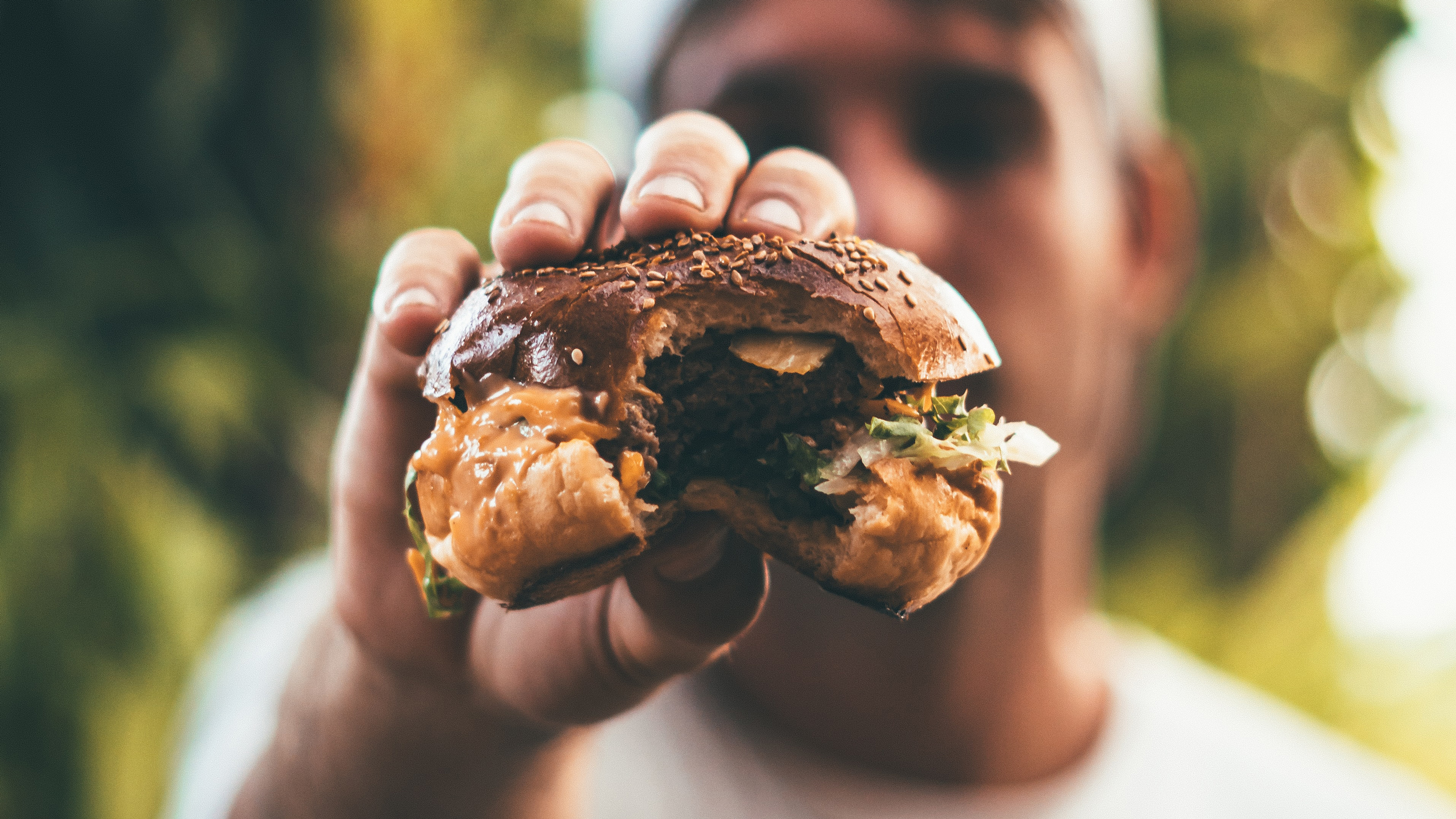Healthy diet: Slow-cooked dinners could be better for you than grilling
Winter is coming: time to put away the grill and break out the slow cooker for a healthy diet


Steak sizzling in the pan over a knob of butter, a rack of ribs on the barbecue, or even a grilled chicken breast sliced over a caesar salad... the world's best chefs use high heat when treating their meat, creating dazzling culinary creations. However, while using high heat to caramelize meats might be amazing on our palates, new research suggests it could be a problem for our hearts.
- NEW: Why working out could reduce risk of COVID-19 symptoms
- PLUS: Have lockdown workouts given you back pain?
Researchers from the University of South Australia, conducted in partnership with the Gyeongsang National University in South Korea, looked at red meat, white meat and cooking methods in relation to heart health. Although red meat has plenty of benefits, including lots of good-quality protein, iron and healthy fats, an excess of processed red meat is already known to be bad for our hearts and contribute towards conditions such as diabetes.
However, the research also found that high heat and caramelisation produce harmful compounds. UniSA researcher Dr Permal Deo says: "When red meat is seared at high temperatures, such as grilling, roasting or frying, it creates compounds called advanced glycation end products -- or AGEs ¬- which when consumed, can accumulate in your body and interfere with normal cell functions."
These AGEs contribute to inflammation and oxidative stress, two precursors to a whole variety of conditions including cancers diabetes and cardiovascular conditions.

Grilled processed meats like burgers can up your AGE levels
The study looked at the impact of two different diets on a group of participants. One diet featured red meat and processed grains, while the other featured white meat using steaming, boiling, stewing and poaching cooking methods.
Unsurprisingly, it was found the white meat diet was healthier, with the end result being significantly lower AGE levels in the participant's bloodstreams. This doesn't mean, of course, we should all throw out our steaks and start boiling chicken breasts, but we should think about occasional food swaps using these cooking methods to limit our AGE intake.
Get the Fit&Well Newsletter
Start your week with achievable workout ideas, health tips and wellbeing advice in your inbox.
For example, poaching is a delicious way to cook healthy meats like salmon and chicken breast. For red meat, you're in luck: winter's on the way, and there's nothing more nourishing than a hearty, slow-cooked stew, or joint of lamb or beef.
Co-researcher Professor Peter Clifton says: "The message is pretty clear: if we want to reduce heart disease risk, we need to cut back on how much red meat we eat or be more considered about how we cook it. Frying, grilling and searing may be the preferred cooking methods of top chefs, but this might not be the best choice for people looking to cut their risk of disease.
"If you want to reduce your risk of excess AGEs, then slow cooked meals could be a better option for long-term health."
Liked this?
Matt Evans is an experienced health and fitness journalist and is currently Fitness and Wellbeing Editor at TechRadar, covering all things exercise and nutrition on Fit&Well's tech-focused sister site. Matt originally discovered exercise through martial arts: he holds a black belt in Karate and remains a keen runner, gym-goer, and infrequent yogi. His top fitness tip? Stretch.
-
 A Pilates instructor says this is the beginner-friendly core exercise everyone should try
A Pilates instructor says this is the beginner-friendly core exercise everyone should tryForget crunches, this is the perfect foundation move
By Alice Porter Published
-
 Prevent poor posture and release tension from sitting down with these four simple stretches from a yoga instructor
Prevent poor posture and release tension from sitting down with these four simple stretches from a yoga instructorThe daily poses he swears by, no matter what
By Alice Porter Published